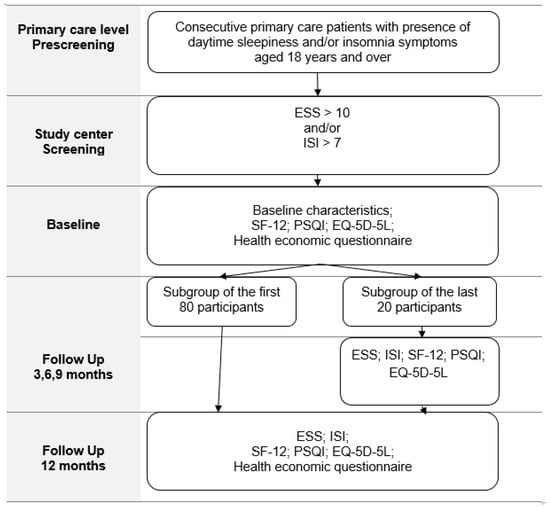
### The Concealed Connection Between Sleep and Cognitive Degradation: Recent Research Provides Clarity
A recent investigation has illuminated a troubling link between sleep problems and cognitive degradation in elderly individuals. Published in *Neurology* on November 6, 2024, the research indicates that older adults suffering from excessive daytime drowsiness or a lack of motivation (often stemming from interrupted sleep) may face an elevated risk of developing motoric cognitive risk (MCR) syndrome — a condition preceding dementia. This study contributes to the increasingly convincing evidence highlighting sleep’s significance for cognitive wellness and prompts an intriguing inquiry: Could improved sleep patterns aid in dementia prevention?
#### What is Motoric Cognitive Risk Syndrome?
Motoric Cognitive Risk (MCR) syndrome may emerge as a signal of impending dementia. It is characterized by a mix of sluggish walking speed and self-reported memory difficulties, without the mobility impairments commonly associated with dementia. Although those with MCR have not yet been diagnosed with dementia, researchers suspect it could serve as an early warning indicator of cognitive decline.
MCR is viewed as an intermediary stage between normal aging and dementia, potentially presenting a critical opportunity for preventive measures and interventions. Early recognition during the MCR stage could facilitate lifestyle changes and treatments, possibly postponing or alleviating the onset of dementia.
### The Research: Investigating Sleep Patterns and Cognitive Wellness
Researchers at the Albert Einstein College of Medicine examined the relationship between sleep disorders and cognitive wellness by assessing a cohort of 445 senior adults, averaging 76 years old. These individuals were devoid of dementia at the study’s inception. Throughout an average follow-up duration of three years, the investigators meticulously tracked sleep habits, walking speeds, and memory complaints among the participants.
#### Notable Discoveries
The results were both fascinating and alarming. A remarkable **35.5%** of participants reporting excessive daytime sleepiness or lack of motivation, typically attributed to sleep problems, subsequently developed MCR syndrome. In stark contrast, only **6.7%** of those who did not report such sleep issues went on to develop the syndrome.
The researchers accounted for various factors, including age, depression, and other health concerns. After controlling for these variables, the findings still showed that individuals facing sleep-related challenges were more than **three times** as likely to develop MCR compared to their counterparts without these problems.
### What Sleep Issues Were Investigated?
The research focused on specific sleep challenges frequently experienced by senior adults:
– **Difficulty initiating sleep** within 30 minutes,
– **Frequent awakenings** during the night and trouble returning to sleep,
– **Excessive daytime drowsiness**, or great difficulty staying awake during routine activities such as driving, eating, or watching TV.
Given the strong association between these disturbances and cognitive risk, researchers advocate for expanded screening to detect sleep issues promptly, ideally before they escalate into more severe cognitive problems.
#### Victoire Leroy, MD, PhD, who spearheaded the study, stressed:
> “Our results highlight the necessity of screening for sleep disorders in older adults. Early intervention may provide an opportunity to avert cognitive decline later in life.”
### Does Sleep Impair Cognitive Functions?
While the investigation presents a compelling connection between sleep disturbances and dementia, it’s essential to acknowledge that correlation does not equate to causation. The study refrains from decisively establishing that inadequate sleep leads to cognitive decline. Nonetheless, the connection is substantial enough to warrant additional exploration.
The study faced certain limitations. For instance, participants had to self-report their sleep behaviors, which might introduce recall biases or inaccuracies in the data. Moreover, the precise causal relationship between sleep irregularities and cognitive decline remains uncertain.
Nevertheless, Dr. Leroy and her team believe there is sufficient evidence to warrant further inquiry.
> “Future investigations should aim to uncover the specific mechanisms through which sleep disturbances might contribute to cognitive decline and MCR,” she remarked.
### Moving Forward: Can Enhanced Sleep Safeguard Against Cognitive Decline?
While further research is necessary to draw definitive conclusions, this study hints at the critical need for older adults to tackle sleep issues early. Cognitive decline and dementia present significant public health challenges, and if sleep habits are indeed a modifiable risk factor, the implications for prevention efforts could be extensive.
Healthcare providers and caregivers may eventually start screening older adults for sleep issues as a proactive means to identify early indicators of potential cognitive decline. Should subsequent research affirm these associations, enhancing sleep hygiene in later life could become a focal point in strategies aimed at preventing dementia.
### Core Concepts for Comprehending the Study:
**Motoric Cognitive Risk Syndrome (MCR):** As an early indicator of dementia, MCR is characterized by slow walking speed combined with self-reported memory concerns. It is not classified as a disability yet, but its presence may signal future cognitive decline.
**Cognitive Decline:** This refers to a decline in mental faculties, including memory, attention, language, and problem-solving skills, which can signal the onset of dementia.
**Ex